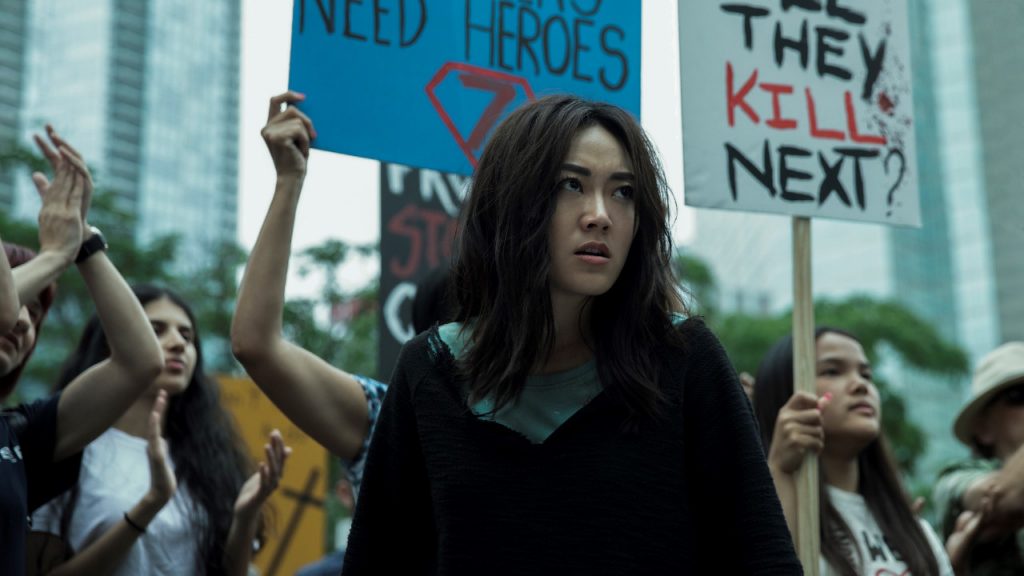When The Boys premiered last year, it’s irreverent take on superheroes soon gained a strong following. Using superheroes as a filter, the show took on the entertainment industry, celebrity culture and the military industrial complex. In the second season, it continues to make fun of superhero entertainment, but it also sets its sight on the portrayal of LGBTQ individuals on the screen, fear-mongering politics and white supremacy.
The season doesn’t exactly start off on the right foot. The titular group is on the run, with Billy Butcher (Karl Urban) missing since his face-off with the Homelander. Soon, however, things kick into high gear when they run into a super terrorist and Starlight leaks Vought’s use of Compound V to the press. What follows is a frantic season that’s not only just as bonkers as the first season, but also furthers character development for several characters.
The new important addition to the cast this season is Stormfront (Aya Cash), a social media-savvy superhero who has a couple of dark secrets of her own. The show also introduces a strangely familiar cult-like religious organization in the form of Church of the Collective, who quickly recruit the Deep and A-train into their ranks as they seek to gain re-entry into the Seven. There’s also Stan Edgar (Giancarlo Esposito), Vought’s head honcho, who’s trying to manage everything and make sure that the company comes out on top despite some of his top superheroes constantly creating giant messes.
Of course, Homelander (Antony Starr) is as narcissistic and insecure as ever. He tries to jockey for more control in the vacuum left behind by Stillwell’s demise, but he soon finds himself saddled with a new challenge in the form of Stormfront, who has a knack for pandering to the masses and riling them up, and also has bright ideas about how the Seven should be run. Then there’s him trying to be a new dad with Ryan, often barging into Becca’s life and coaxing his son to display more superpowers.
There are other running threads throughout the season, such as Hughie (Jack Quaid) and Annie (Erin Moriarty) trying to stay together despite the turmoil and chaos around them, and Kimiko (Karen Fukuhara) having a bone to pick with Stormfront after the two get into a brutal fight. There’s also Billy Butcher trying to rescue his wife, Becca (Shantel VanSanten), who refuses to leave without her son.

As entertaining as The Boys is, however, it suffers from the same problem most superhero stories do: at their core, they are simplistic stories of good vs evil that do not speak to a deeper truth about humanity. The show makes an effort to appear current and relevant, but it’s not as wonderfully weird as something like Doom Patrol or as poignant as the Umbrella Academy. Then again, The Boys is probably better than the other two in a pure entertainment context.
The way the season ends provides a nice mix of catharsis and tragedy, setting the stage for a new status quo that’s actually not that different from the old way of things. The Boys is probably here to stay for a while, and hopefully, it will continue to be as violently fun as it had been so far. There’s an undeniable, almost forbidden adrenaline rush in seeing superhuman people tear through ordinary folks like papier mache, or in some cases, literally make their heads explode. Let’s also hope that it can build a stronger emotional core, and possibly, long-term story threads that keep its audience coming back for more.